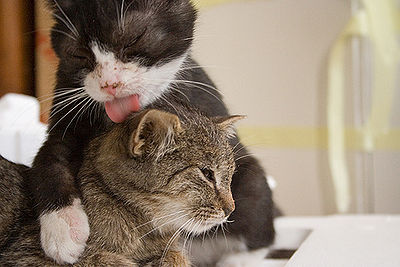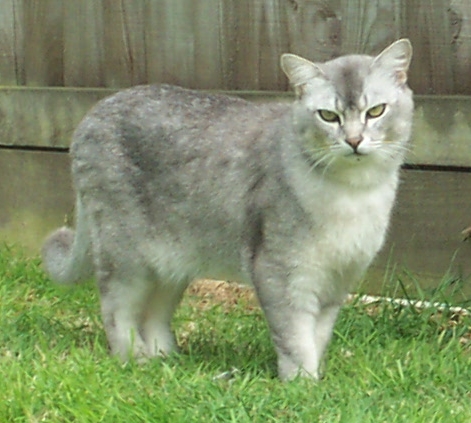
FIP, Feline Infectious Peritonitis, is a viral disease that attacks the body’s systems. It affects wild cats as well as domestic ones and is found throughout the world.
It is thought that FIP is a mutation of another virus.
If a cat’s immune system is strong, the cat can fight off the virus. However if the cat’s immune system is weak, the virus multiples. Cats with weak immune systems are usually kittens, geriatric cats or cats infected with FeLV-Feline Leukemia Virus. Kittens can develop FIP at 4-6 weeks old. Geriatric cats, beginning at 10-12 years of age, can develop FIP.
There are 2 forms of FIP, wet and dry.
In the dry form, Granulomas, tumor-like massses of tissue, usually occurring in a chronic inflammatory condition, form slowly. Signs to look for are loss of appetite, weight loss, lethargy, tremors, convulsions, incontinence, disorientation, to name a few.
Cats with this form can live up to a year after diagnosis.
The wet form signs are similar, weight loss, fever, loss of appetite, anemia, constipation or diarrhea. The cat develops a pot belly due to accumulations of abdominal fluids or can have respiratory problems due to accumulaion of chest fluids.
Most cats do not survive this form and live only about 2 months after signs appear.
There is a blood test called a titer to measure antibodies against the disease, but it is not completely accurate.
Trials are ongoing to find drugs to kill or slow down the virus. At present Pfizer Pharmaceuticals makes a vaccine in nasal spray form, but it shows minimal effectiveness in preventing FIP.


